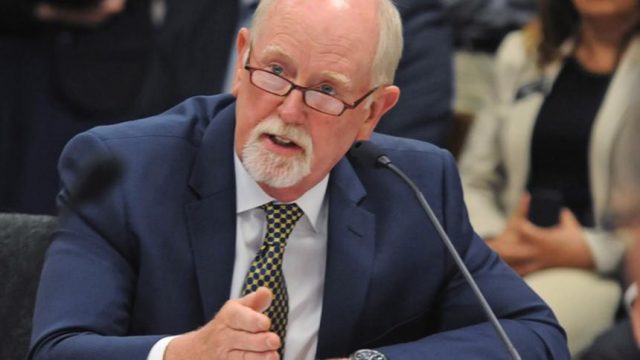Audio: Rep. Al Carlson Says Burgum “Has Seen the Light” on Some of His Criticisms of North Dakota Lawmakers

TOM STROMME/Tribune Rep. Al Carlson (R-Fargo) said legislators looked at both sides of the funding issue and that SB 2379 was the best way forward for the next five months until the 2017 legislature convenes. Rep. Carlson is the House majority leader.
I had House Majority Leader Al Carlson on my radio show yesterday and, among other things, I asked him how the legislative races were shaping up this election cycle. Particularly after a primary campaign during which Republican gubernatorial candidate Doug Burgum was pretty critical of the Republican-led state government.
Among other things, Burgum lambasted “run away spending” from state government and accused the status quo of being a “good old boys club.”
“Candidate Burgum has seen the light on some of his comments,” Carlson told me, adding that Burgum has been “helpful” to legislative campaigns and “trying to get our people elected.”
[mks_pullquote align=”left” width=”300″ size=”24″ bg_color=”#ffffff” txt_color=”#000000″]”Unless the people get involved in this at the local level…things aren’t going to change,” Carlson said.[/mks_pullquote]
Burgum certainly seems to have had a change in tone since the end of the primary campaign. For instance, the “run away” spending he once criticized has now become “smart spending.” As I pointed out during the primary, it may be true that there was never really all that much difference between Burgum and his primary opponent Attorney General Wayne Stenehjem. Ideologically speaking, anyway.
Carlson also spoke to me about property taxes, which seem to be at or near the top of the list of complaints from the public every legislative session. Carlson, echoing state Rep. Jim Kasper who I interviewed earlier this week, said the property tax problem needs to be solved locally.
“Unless the people get involved in this at the local level…things aren’t going to change,” Carlson said.
In a recent op/ed Carlson wrote about property taxes and suggested some reforms which could help locals solve the problem, including requiring that property tax statements reflect dollars and percentages instead of mill levies which can be confusing, caps on automatic valuation increases, and a requirement that budget increases over a certain percentage be voted on by the people.
Sounds good to me. Here’s the full audio of our conversation:




